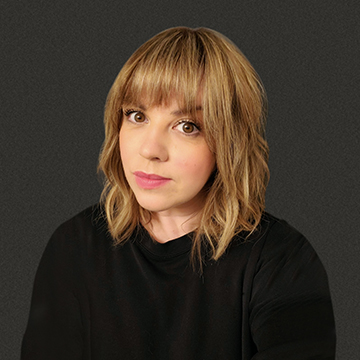Centring traditional Indigenous knowledge and science is the driving idea behind the Tipis and Telescopes event which was held in Winnipeg in May, and hosted nearly 160 students from Frontier, Louis Riel, St. James-Assiniboia and Seven Oaks School Divisions.
The Tipis and Telescopes workshops were presented by local Elders and Knowledge Keepers including Winnipeg’s own “star guy” Elder Wilfred Buck who is an expert in Indigenous star-lore, as well as Dr. Juan-Carlos Chavez, a US-based researcher in Indigenous knowledge.
“A big purpose of this event was to empower Indigenous kids with Indigenous knowledge,” says Sarah Gazan, staff officer at MTS. “It’s the recognition that there’s other equally valid ways of seeing and understanding the world, besides just the Western ways.”
The three-day event was planned through a collaboration between The Manitoba Teachers’ Society, Frontier, Louis Riel, St. James-Assiniboia, and Seven Oaks School Divisions, the First Nations Health and Social Secretariat of Manitoba, Ogijita Pimatiswin Kinamatawin, and the Spirit Horse Initiative. Tipis and Telescopes events have been held since 2014 through Elder Wilfred Buck, though the collaborative May event was the biggest to date in Manitoba.
Event Hosts Students from Across Manitoba
Students travelled from as far as Moose Lake, Wabowden and Grand Rapids to attend the event, which started with a welcoming and opening ceremonies on Monday night, followed by a full day of activities on Tuesday and Wednesday. Some of the sessions included: Animal processing, Archery, Art, Bottle rockets, Circle drumming, Indigenous games, Star stories in two planetariums, Traditional medicines, as well as Men’s, Women’s and Two-Spirit teachings.
“It was wonderful for the metro and rural kids to connect through this event,” says April Waters, who is the Administrator of Indigenous Achievement & Community Support at St. James-Assiniboia School Division, and was part of the organizing committee. “They don’t often get the chance to interact and they learn so much from each other.”
Waters also notes that a lot of the students in urban settings don’t have a chance to go out to their home communities. “For us to be able to do some actual land based teachings within an urban setting was so good for the students and teachers because they could see that you don’t have to go outside the city to still have meaningful learning in that way.”
First Nations Astronomy Teachings
This meaningful learning is what has been driving Buck in his teachings of First Nations astronomy. “It’s important for First Nations students that ancestral worldviews related to science are reflected in their education in as prevalent a manner as those associated with Greek and Roman mythology. When the Elders tell you their stories it’s up to you to pull out all the knowledge that is there, and that was meant for you to understand. And you piece it together. It is our responsibility to pass these stories to our children.”
“It’s really about elevating Indigenous knowledge that has existed here for thousands of years,” says Gazan. “One of the things that colonization and oppression have done is disconnect our kids from the land and their sense of who they are. It was wonderful watching the kids make those connections and see that you can be a scientist while incorporating an Indigenous understanding of the world as well, because it’s equally valid. Our people had an education system prior to colonization.”
Creating Partnerships Between Divisions
Gazan says that the May event also created partnerships between school divisions. “Because oftentimes, when you’re doing Indigenous education, you’re doing it in isolation. Doing this event, we’ve created those partnerships and we hope to continue working together.”
Waters has already started thinking about what her school division can do with events like this in the future. “What can we do to bring in kids who are just so hungry for having themselves represented in activities and seeing their culture celebrated and valued? And it’s so important for non-Indigenous kids to sit and learn as well, because that’s how we build those relationships, and respect and understanding. That’s still so highly needed.”
– Originally published in the Fall 2023 issue of the MB Teacher
Read More MB Teacher Features Here!

Matea Tuhtar is a writer/photographer for the MB Teacher magazine and the Media Communications Specialist for The Manitoba Teachers’ Society.
